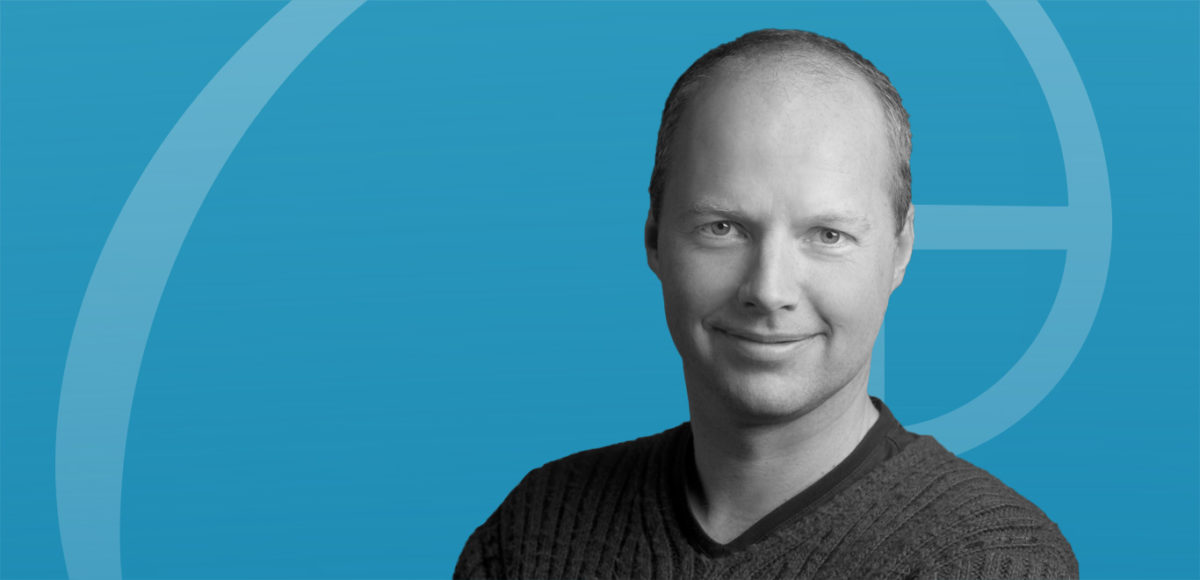Interview with Sebastian Thrun
The complete interview will be published later this year in Alexander Görlach’s next publication on AI and society, which he is conducting together with the Vodafone Institute on Society and Communications. Click here to view the lastest publication on that series.
Alexander Görlach: We hear so much talk about how AI is going to change health care, automobiles and so many other industries. What do you see emerging in the new decade?
Sebastian Thrun: This will be the decade of artificial intelligence. I like to compare AI to the agricultural revolution, when machines began doing a lot of physical work. Farming used to involve hard physical labour. Hundreds of years ago, almost all Europeans worked in agriculture, but today, that figure is below 2 percent. I think of AI as being the same for menial work, for people who work in offices. They do extremely repetitive work, day in and day out. In the future, they can hand off some of the work to the machines.
This will be the decade of artificial intelligence. I like to compare AI to the agricultural revolution, when machines began doing a lot of physical work.
Alexander Görlach: Those changes, though, are also fuelling fears about job losses and other forms of displacement. Do you see parallels between the current debate over AI and the concerns during the Industrial Revolution that the changes would cause people to lose their livelihoods?
Sebastian Thrun: It’s a great debate, and a necessary one because it will affect all of us. We need to use AI very responsibly and very carefully. If we use it well, then we will become much smarter as a human race. In addition to freeing ourselves from repetitive work, we can also improve our jobs. Doctors will be better in diagnosing and treating diseases like cancer – and who doesn’t want to have a better doctor? Our lawyers will be better too, and so will our pilots.
Alexander Görlach: It feels like the debate about the ethical aspects of AI – potential inherent biases and the disadvantages it can cause – is taking place even before the technology itself has been introduced.
Sebastian Thrun: There is uncertainty every time a new technology is invented. And that gives rise to questions like: What does it mean for me? What does it mean for my neighbours, for my community, for my country? And because every new technology affects humanity in some way, it’s important to have this debate and to think about its risks and pitfalls in order to minimise the chances that something could go wrong. AI is no exception.
We need to use AI very responsibly and very carefully. If we use it well, then we will become much smarter as a human race. In addition to freeing ourselves from repetitive work, we can also improve our jobs.
Alexander Görlach: Is it our individual or collective responsibility to address the potential pitfalls of AI?
Sebastian Thrun: AI is a technology. It’s a tool, in the same way that a kitchen knife is a tool. I can use a knife to cut my vegetables or I can use it to harm a person. The person decides whether to act ethically. And I want to demystify artificial intelligence a bit: When we talk about AI, we really mean machine learning, which is a subfield of AI. Machine learning is a technique that allows computers to extract rules and patterns from data. If you feed a computer a lot of repetitive data, the computer is able to determine rules based on that data. If you feed a computer enough images of skin cancer, for example, it will eventually be able to detect if a person has skin cancer and provide a diagnosis. If you provide a computer with examples of emails from a criminal and the computer sees enough of them, it can eventually detect patterns and conduct the same task that a person can do. That’s it. So, it’s a tool that allows a computer to acquire the skills of highly repetitive work from people. The question is: How do we use this tool? These decisions need to be made by everybody and not just computer scientists.

 | Technology, AI and ethics.
| Technology, AI and ethics.

